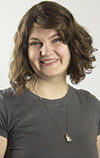Like many small family farms, Meeks Farms and Sons near Evans Mills, New York, is fighting feed prices, larger well-backed competitors, weather and other forces intent on sinking the three-generation farm. The family found reinforcements at the New York Farm Viability Institute.
The institute runs a program called Dairy Profit Team to help farmers fight the downward pull. Farmers are able to select experts to consult with regularly to come up with a plan to increase productivity, profitability and efficiency.
Participants submit an application outlining focus areas and committing to a minimum of seven meetings in a 15-month period and to pay 20 percent of the team fees. Remaining fees up to $2,500 are paid by the institute.
According to the Dairy Profit website, “Participation in the program requires a willingness to provide the team with detailed information on the farm’s operations and an open mind toward making changes based on the team’s recommendations.”
The producer selects the team based on the operation’s needs and goals. The program emphasizes that the final say is always with the farmer.
The Meeks family used the Dairy Profit Team program to gather experts to help the farm, including veterinarians, soil conservationists and specialists in young stock and nutrition.
This panel met monthly with the Meeks family and a facilitator to help keep things on track. The group looked at records and discussed the family goals, including an improved SCC, higher milk production and lower calf mortality.
Cindy Meeks said, “The team was there to help us make a step-by-step plan to get where we wanted to be. Then they checked back each month to see how things were going and make plans for the next goal. It was really helpful.”
As the family made adjustments, they saw marked improvement on the operation. However, the family still faces difficulties. Meeks said that their older facilities are inadequate to keep the cows comfortable and healthy. A colder winter last year saw the loss of several animals, and the small facility doesn’t have the room to raise adequate replacements.
“We want to build a new freestall and milking parlor, but the banks don’t feel we are in a position to take on the debt,” Meeks said.
Part of the dairy profit team included a financial adviser who helped the family work out a plan for expansion to increase profitability on the farm. The adviser suggested finding an investor to help with the upgrade. The family is working on that now, but with the predicted dip in milk prices for 2015, investors are scarce.
“It’s going to be a bigger struggle to continue. We need to expand, but I don’t know how that’s going to work with a drop in milk prices predicted for next year,” Meeks said.
Amid this fight to keep the farm working for the third generation, Meeks worries that her sons with young families “will loose interest when things don’t go the way they should.”
Statistically, the worry is a valid one. The average age of farmers has risen to 58, and the number of small farms dropped 88 percent from 1970 to 2006 as a multitude of small dairy farms were replaced by larger operations.
Fighting this tide can be a long and exhausting battle, but the Meeks find motivation in the strength of a legacy farm and the desire to pass that on to children and grandchildren.
“Our biggest motivation is that it is a family-run business and we’d like to keep it that way. We want to continue on so our grandchildren can be a part of it. It’s tough to keep up a positive attitude when it seems like so many things work against us. It’s not that we aren’t hard working or can’t do the job, but it gets frustrating.”
At the end of the day, this family is willing to fight to keep the tradition of dairying alive in their family using available programs like those offered at the New York Farm Viability Institute to arm themselves for battle.
Meeks said, “I love that running a dairy means you have a business that is yours to run and take it to whatever limit you want to. You accomplish things and can be proud of what you’ve done. We want to use these programs and be able to say we made it and are able to move forward.” PD

-
Melissa Miller
- Staff Writer
- Progressive Dairyman
- Email Melissa Miller








